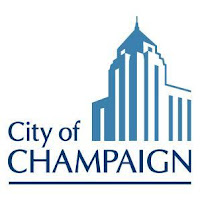There were a few City of Champaign government items over the weekend from the City Council's upcoming study session on Costco coming to town and a couple on local election costs and results.
First, tomorrow Champaign's City Council will have a study session on the potential new Costco at Marketplace Mall. From the Study Session report (available here on the agenda):
The purpose of this Study Session is to present City Council with a request by Costco Wholesale Corporation (Costco) for a development agreement to share retail sales tax revenues. The agreement would facilitate the opening of a new Costco retail store at 2000 North Neil Street next to Marketplace Mall. The agreement would reimburse Costco $2.75M from retail sales tax revenues generated by the business over a period of up to ten years, with the option to extend to a maximum term of fifteen years.Tom's Mailbag had an overview this week in a "sneak peek" article:
The Champaign City Council has a development agreement with Costco on its study-session agenda for Tuesday night. A 150,000-square-foot store would be built on the site of the old Bergner’s department store at Market Place Mall, which is slated for demolition. The two-story store occupied 154,000 square feet.More details here. The News-Gazette had some preliminary takes by City Council members here. WCIA had an additional article with video segment on the possible CostCo here.
If the council approves the agreement at a later regular meeting and Costco completes its negotiations with mall owner Brookfield Properties, construction of the store could begin next spring and the store could be open in late 2020 or early 2021...
The city projects that the Costco would bring in $7.1 million in sales-tax revenue during the first six years the store is open. It would employ 150 to 225 people. The starting hourly rate for a Costco cashier is $14 an hour, although the average employee earns $22.50 an hour.
Tom Kacich touched on this past municipal election in last week's Mailbag and an article yesterday. The Mailbag questions had to do with the additional costs of expanding voting access under the new Clerk, which will be certain to be of interest to future candidates running for the seat:
The county operated eight remote early voting sites (in addition to the Brookens Center) in this election, the first one run by Democratic County Clerk Aaron Ammons. That's up from the six (plus Brookens) that were open in the 2015 consolidated election, run by Republican County Clerk Gordy Hulten.More at the full Qs and A here, including the County Clerk's view of the value of the expenditure. Kacich also looked at the City of Champaign election results yesterday here and attempted to divine voters' support for the status quo:
There also were six days of remote site early voting this year, up from three days four years go.
Ammons estimated that the cost of providing early voting this spring was about $9,700, which includes salaries for election judges, facility fees, parking costs for judges on campus, fuel and staff costs to deliver election equipment and other assorted costs...
The cost of providing early voting in 2015 was estimated by Hulten at less than $5,000.
Feinen's was the biggest victory margin for a Champaign mayor in at least 40 years, save for 2007 and 2003, when Mayor Jerry Schweighart ran unopposed.More at the full article here. It's hard to argue with the mayoral results below (top race). The other City Council seats, however, had a complicated split in a vote-for-three pile of candidates (bottom race):
The support for incumbents continued to the race for the three at-large city council seats where Tom Bruno, Matt Gladney and Will Kyles were re-elected by comfortable margins. The No. 3 finisher, Kyles, secured about 300 more votes than the fourth-ranked candidate, former Champaign County Board Chair Pattsi Petrie.
Support for the three at-large council members wasn't as uniform as it was for Feinen — Petrie and challengers Jon Paul Youakim, Andrew James Christensen and Michael LaDue each won several precincts — but Champaign voters clearly preferred the incumbents and the direction that the city is headed.
The top three (Bruno, Kyles, and Gladney) got more votes than any other candidate and that's what matters in the end. But supporters of the opposition candidates would certainly see the vote totals of the incumbents versus the opposition differently.
- With 9,537 incumbent votes to 9,273 for opposition candidates they'll see a more even split just along those lines.
- They'll note that the more liberal candidates split the vote among five opposition candidates and one incumbent endorsed by the Champaign County Young Democrats too.
- And they'll look at that pile of over 3,000 undervotes making it even less clear.
The incumbents won, so the status quo was maintained. Whether one can divine that as the message of the voters depends on how hard one wants to squint at the numbers this way or that way.


No comments:
Post a Comment